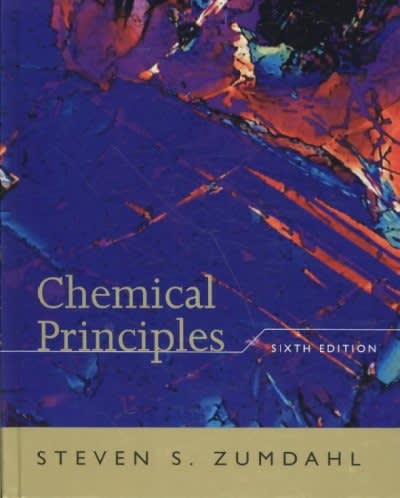A 225-mg sample of a diprotic acid is dissolved in enough water to make (250 . mathrm{mL})
Question:
A 225-mg sample of a diprotic acid is dissolved in enough water to make \(250 . \mathrm{mL}\) of solution. The \(\mathrm{pH}\) of this solution is 2.06. A saturated solution of calcium hydroxide \(\left(K_{\mathrm{sp}}=1.3 \times 10^{-6}ight)\) is prepared by adding excess calcium hydroxide to pure water and then removing the undissolved solid by filtration. Enough of the calcium hydroxide solution is added to the solution of the acid to reach the second equivalence point. The \(\mathrm{pH}\) at the second equivalence point (as determined by a \(\mathrm{pH}\) meter) is 7.96. The first dissociation constant for the acid \(\left(K_{\mathrm{a}_{1}}ight)\) is \(5.90 \times 10^{-2}\). Assume that the volumes of the solutions are additive, that all solutions are at \(25^{\circ} \mathrm{C}\), and that \(K_{\mathrm{a}_{1}}\) is at least 1000 times greater than \(K_{\mathrm{a}_{2}}\).
a. Calculate the molar mass of the acid.
b. Calculate the second dissociation constant for the acid \(\left(K_{\mathrm{a}_{2}}ight)\).
Step by Step Answer:






